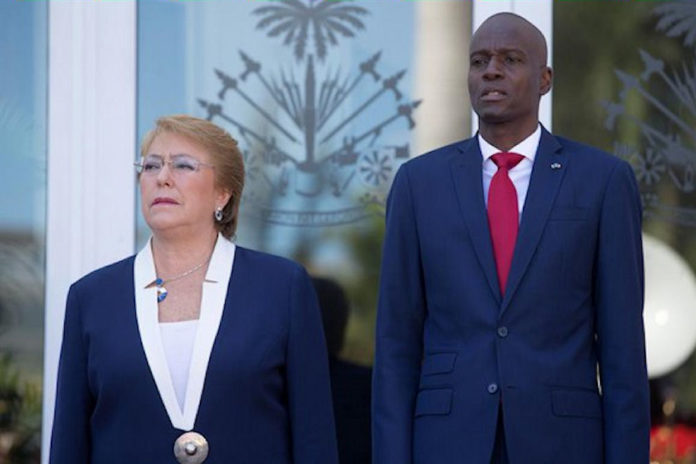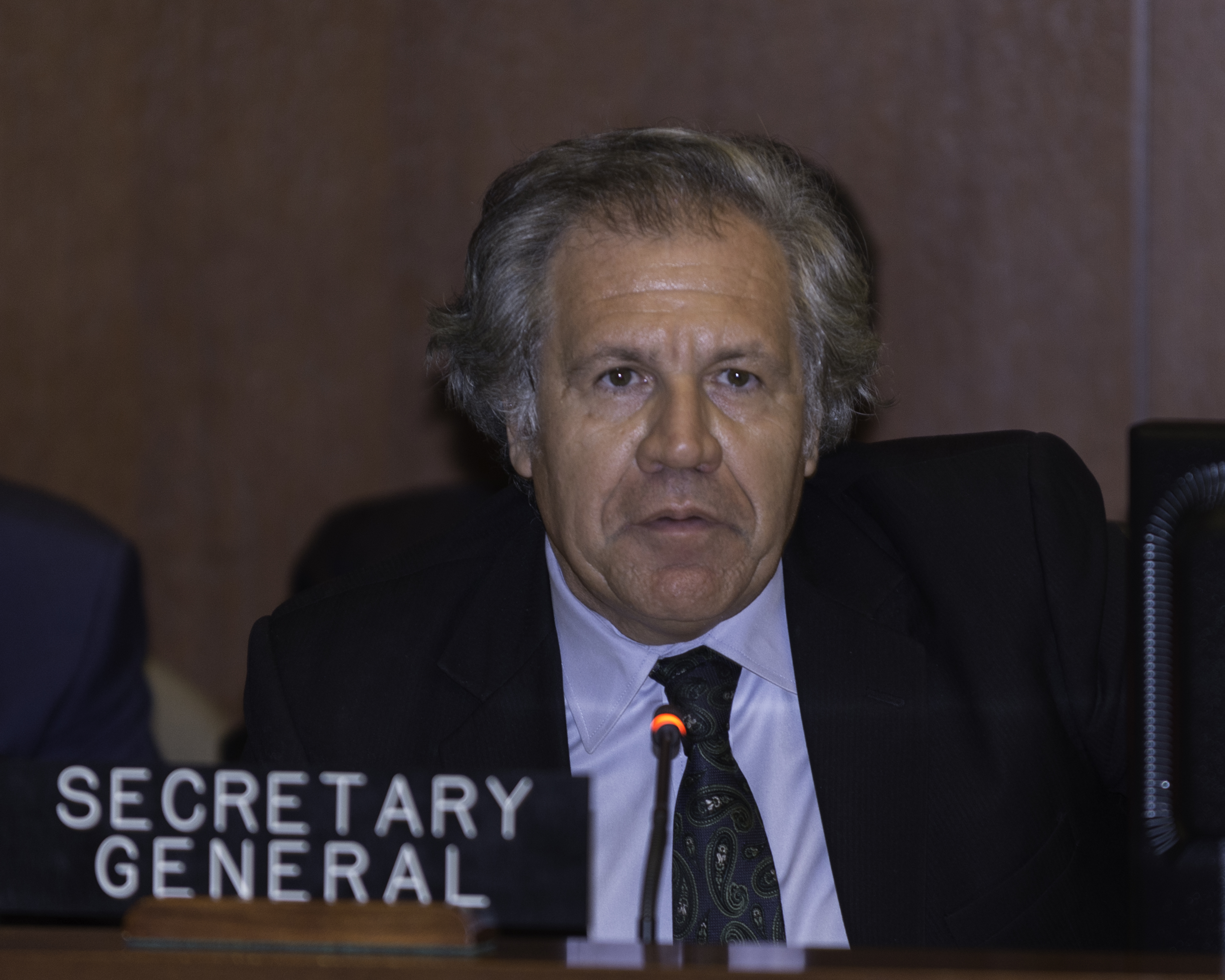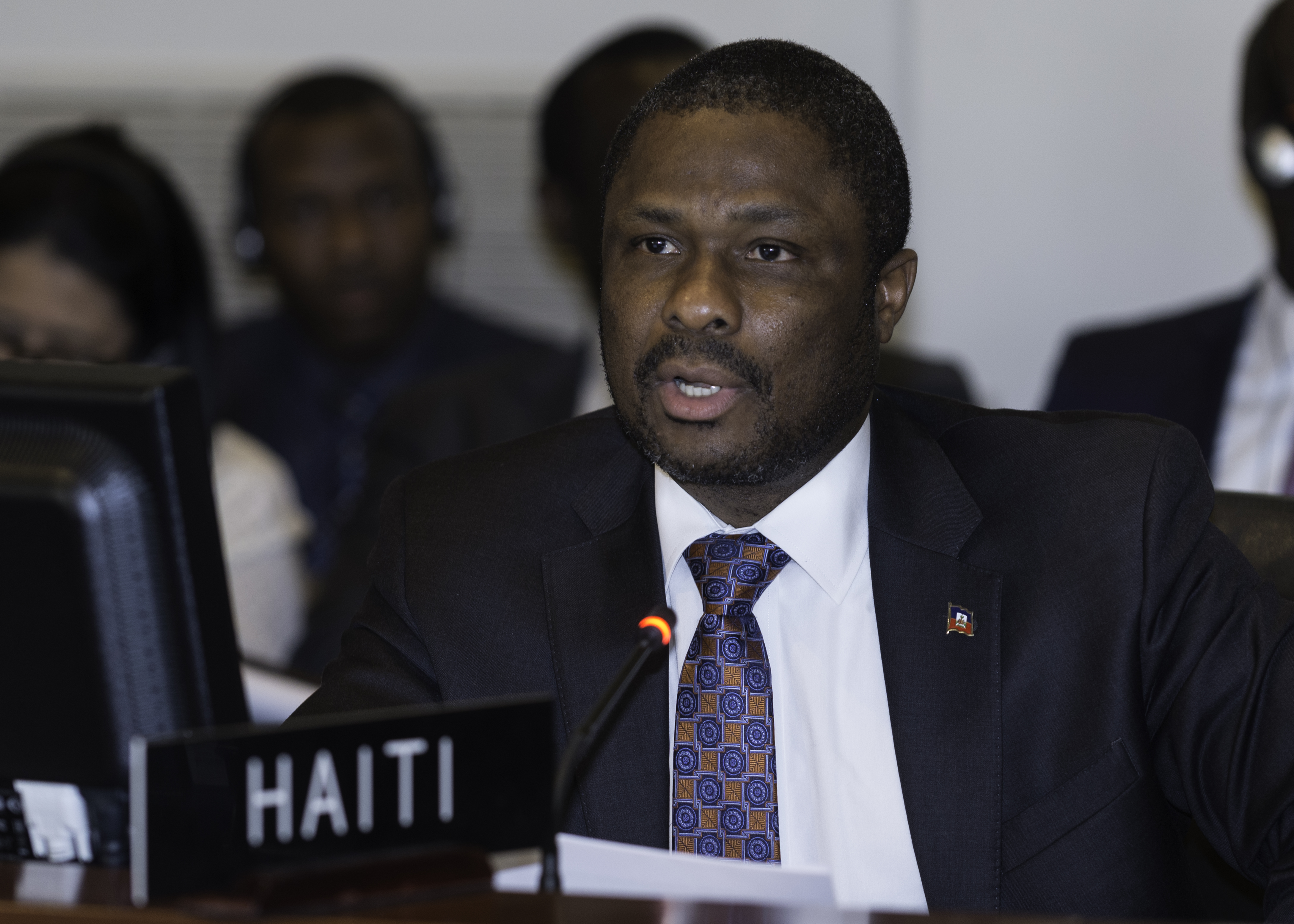
Chile’s President Michelle Bachelet visited Haiti this week ostensibly to discuss with Haitian President Jovenel Moïse the future of United Nations troops in Haiti. Since the deployment of the UN Mission to Stabilize Haiti (MINUSTAH) in June 2004, over 12,000 Chilean troops have been deployed in Haiti, Bachelet said. Today, Chile has 392 soldiers and 41 police in Haiti, the second largest contingent after Brazil’s 981 soldiers.
On Apr. 15, the UN Security Council is likely to renew MINUSTAH’s mandate for a final six-month period, as recommended by UN Secretary General Antonio Guterres in a Mar. 16 report. Guterres proposed to the Council “a staggered but complete withdrawal” of the 2,370 UN soldiers remaining in Haiti to be replaced by a new mission of 295 UN police officers which would “support political stability, [and] good governance, including electoral oversight and reform.” There are now about 844 UN police officers in Haiti, bringing the current MINUSTAH armed force to over 3,200.
In short, after MINUSTAH’s Oct. 15 end, a reduced, renamed mission would remain, on behalf of the U.S., Canada, and France primarily, to “monitor and exercise an early warning function” against any anti-imperialist political developments in Haiti (of course, Guterres used the euphemism “for conflict prevention, human rights and rule of law issues”).
However, the day after Bachelet met with Moïse on Mar. 27, the Organization of American States (OAS) convened an extraordinary session at its Washington, DC headquarters on whether to sanction Venezuela for what OAS Secretary General Luis Almagro says is Venezuela’s “violation of every article in the Inter-American Democratic Charter.” In a Mar. 14 report, Almagro stepped up his years-long campaign to invoke the OAS’s sovereignty-smashing “Democratic Charter” to expel Venezuela from the body, as happened to Cuba after its 1959 revolution.

“Almagro is a liar, dishonest, evildoer, and mercenary,” said Venezuelan Foreign Minister Delcy Rodríguez during a Mar. 27 visit to the OAS, where she attempted to stop the next day’s extraordinary session. “Almagro is not acting alone. He is a conduit for the orders that are dictated to him by Washington.”
In its campaign against Venezuela, Washington has enlisted the support of 13 other nations to issue a Mar. 23 declaration calling on President Nicolas Maduro’s government to release political prisoners, bow to the opposition-controlled National Assembly’s decisions, and set an electoral calendar, or be sanctioned. The signatories are Argentina, Brazil, Canada, Colombia, Costa Rica, Guatemala, Honduras, Mexico, Panama, Paraguay, Peru, Uruguay… and Chile.
The U.S. needs two thirds – or 24 – of the OAS’s 35 member nations to invoke the “Democratic Charter.”
Most of the Caribbean member states have refused to take part in the OAS’s flagrant meddling in Venezuela’s internal affairs. In addition to solidarity and principle, they may also be motivated by self-interest, because Venezuela provides 12 of the 15 Caricom nations with cheap oil and other assistance through its PetroCaribe program. Under this accord, Haiti, for example, has to only pay 60% of its monthly petroleum bill up front. The remaining 40% goes into a PetroCaribe account which can be used for social welfare projects. It is repayable at 1% interest over 25 years.
Nonetheless, four Caribbean nations – Bahamas, Barbados, Jamaica, and Saint Lucia – along with Belize and Guyana supported putting Almagro’s Venezuela report on the Mar. 28 extraordinary session’s agenda. This suggests that Washington may have 20 votes, only four short of what they need to expel Venezuela.
Meanwhile, also on Mar. 27, right-wing U.S. Sen. Marco Rubio threatened the Dominican Republic, El Salvador and Haiti with an aid cut-off if they did not join Washington’s campaign to overthrow the Venezuelan government.
“This is not a threat, but it is the reality,” said Rubio, one of the U.S. Congress’s most aggressive opponents of the Venezuelan revolution. “We have a very difficult situation in Washington, where massive cuts in foreign aid are under consideration, and it will be very difficult for us to justify assistance to those countries if they, at the end of the day, are countries that do not cooperate in the defense of democracy in the region.”
Despite Rubio’s bluster, Haiti voted against putting the situation in Venezuela on the Mar. 28 extraordinary session’s agenda, along with 14 other nations. Cuba still remains excluded from the OAS and says it will not consider joining the body out of solidarity with Venezuela.

The OAS should be considering ejecting the U.S., not Venezuela, Canadian journalist Joe Emersberger argued in a Mar. 28 Telesur op-ed. “Long before Trump, the case for kicking the United States out of the OAS because of its aggression against other states in the region was overwhelming,” he wrote. “Set aside the hundreds of thousands of people who were murdered during the 20th century because of the U.S. government’s savage opposition to progressive reform in Latin America. Restrict yourself to considering the U.S. government’s record in the 21st century alone… Venezuela (2002), Haiti (2004), Honduras (2009), Paraguay (2012), and Brazil (2016). Four were successful.”
Of those coups d’état, “the 2004 coup in Haiti is by far the worst act of aggression by the U.S. against a member state of the OAS in the 21st century,” Emersberger writes. “U.S. troops kidnapped the elected president, Jean Bertrand Aristide, in the early hours of the morning on Feb. 29, 2004, and flew him off to the Central African Republic. Canadian troops secured the airport while it happened. For two years, under the dictatorship of Gerard Latortue, thousands of Aristide’s supporters were murdered. Jeb Sprague and Peter Hallward, who provided two of the most thorough accounts of the period, explained how the OAS discredited free and fair elections in 2000 which provided the pretext for U.S.-led economic sanctions that helped set the stage for the coup.”
In short, “OAS bureaucrats reliably serve the Imperial Rogue State,” Emersberger concludes. “There was, for example, never any threat of suspending Haiti from the OAS when it was under dictatorial rule from 2004 to 2006.”
Despite its participation in MINUSTAH, Bachelet’s Chile has generally been viewed as allied with the progressive governments of Bolivia, Ecuador, and Venezuela. However, today her government is giving its support to the U.S. and Almagro campaign against Nicolas Maduro’s government.
After hours of often heated debate, the Mar. 28 OAS meeting ended with no consensus to censure Venezuela. The Bolivarian Republic’s Deputy Foreign Minister Samuel Moncada began the session arguing that it was “illegal” and represented a violation of the OAS’s non-interventionist founding principles, a position echoed by Bolivia and Nicaragua. At the end of the meeting, Moncada, despite regular interruptions, gave a fiesty reply to Venezuela’s critics, including Mexico, Colombia, Canada, and the United States.
“Moncada closed his speech to a roomful of applause despite being interrupted by Canada’s permanent representative to the OAS, Jennifer May Loten, who denounced allegations that the U.S. rallied support against Venezuela,” the website Venezuela Analysis reported.
Did Bachelet discuss the situation in Venezuela with Jovenel Moïse? Is there a plan afoot to win over Haiti to the nations collaborating with the U.S./Almagro offensive?
Although Haiti commendably stood with Venezuela this week, in the days ahead the Haitian people must watch carefully for any signs that the government of President Jovenel Moïse and his new Prime Minister Jack Guy Lafontant might waver on this issue.










